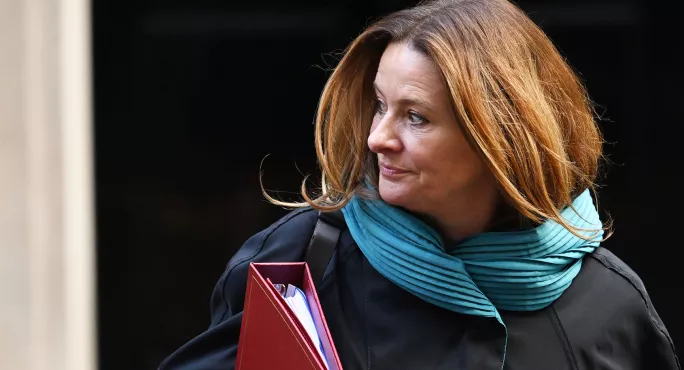The education secretary has said that having minimum service levels in schools would protect “vulnerable children” after the government’s bill cleared its first Commons test.
It comes after the biggest teaching union, the NEU teaching union, announced seven days of strike action across England and Wales from 1 February.
Education secretary Gillian Keegan has admitted she cannot guarantee that schools will remain open during strikes by teachers starting next month.
She also said introducing minimum service levels in the future would protect “vulnerable children” in schools, but she hoped that the government’s anti-strike legislation would not be needed for the teaching profession.
The NEU is launching strike action over demands for a fully-funded, above-inflation pay rise for teachers.
Last night, Ms Keegan said a vote for strike action by teachers was “disappointing” and “will have a damaging impact on pupils’ education and wellbeing”.
The controversial Strikes (Minimum Service Levels) Bill had its second reading in the Commons yesterday evening, with business secretary Grant Shapps saying life would be made “harder for every single family” in the country if the government agreed to “inflation-busting” pay demands.
The bill, published last week, sets minimum service levels for a number of key sectors and includes the removal of some workers’ protection against unfair dismissal for going on strike if they have been given a notice telling them to work.
Appearing on radio station LBC this morning, Ms Keegan said the focus of the Strikes Bill legislation was mostly on rail and the health service, not schools, and that while education was included in the legislation, “we’re hoping not to use it for education because, at the moment, we’re not at that stage”.
“We need to be able to keep schools open for vulnerable children, in particular. That is something we very much learned during the pandemic,” she said.
Minimum service levels ‘will not be law’ in time for this strike
Speaking after the results of the NEU ballot, joint general secretary Dr Mary Bousted told BBC Radio 4’s PM programme she was “very happy to talk about minimum service levels with the government”.
She said she would like the minimum service levels to “exist every day, so that every day in all our schools we have enough teachers in the right subject areas so that all children can get the education they deserve”.
“The minimum service levels that the government is looking to impose will not be in law by the time of the strike.”
And deputy Labour leader, Angela Rayner, criticised the bill saying the legislation “threatens teachers and nurses with the sack during a recruitment and retention crisis”.
The Department for Education has published guidance for schools telling them to prioritise vulnerable children and those with parents who are critical workers if they need to prioritise places due to strike action.
The guidance says that the DfE expects headteachers to take “all reasonable steps to keep the school open for as many pupils as possible”.
And it adds that, in addition to prioritising vulnerable children, “schools should consider prioritising pupils due to take public examinations and other formal assessments”.
The NEU strike is set to take place in February and March after a 90 per cent vote for strike action.
Overall, 121,253 members voted for strike action in the ballot, which closed last Friday, with a turnout of 53.27 per cent.
The union is declaring seven days of strike action in February and March, though any individual school will only be affected by four of them.
The first will be on Wednesday 1 February, affecting 23,400 schools in England and Wales.




